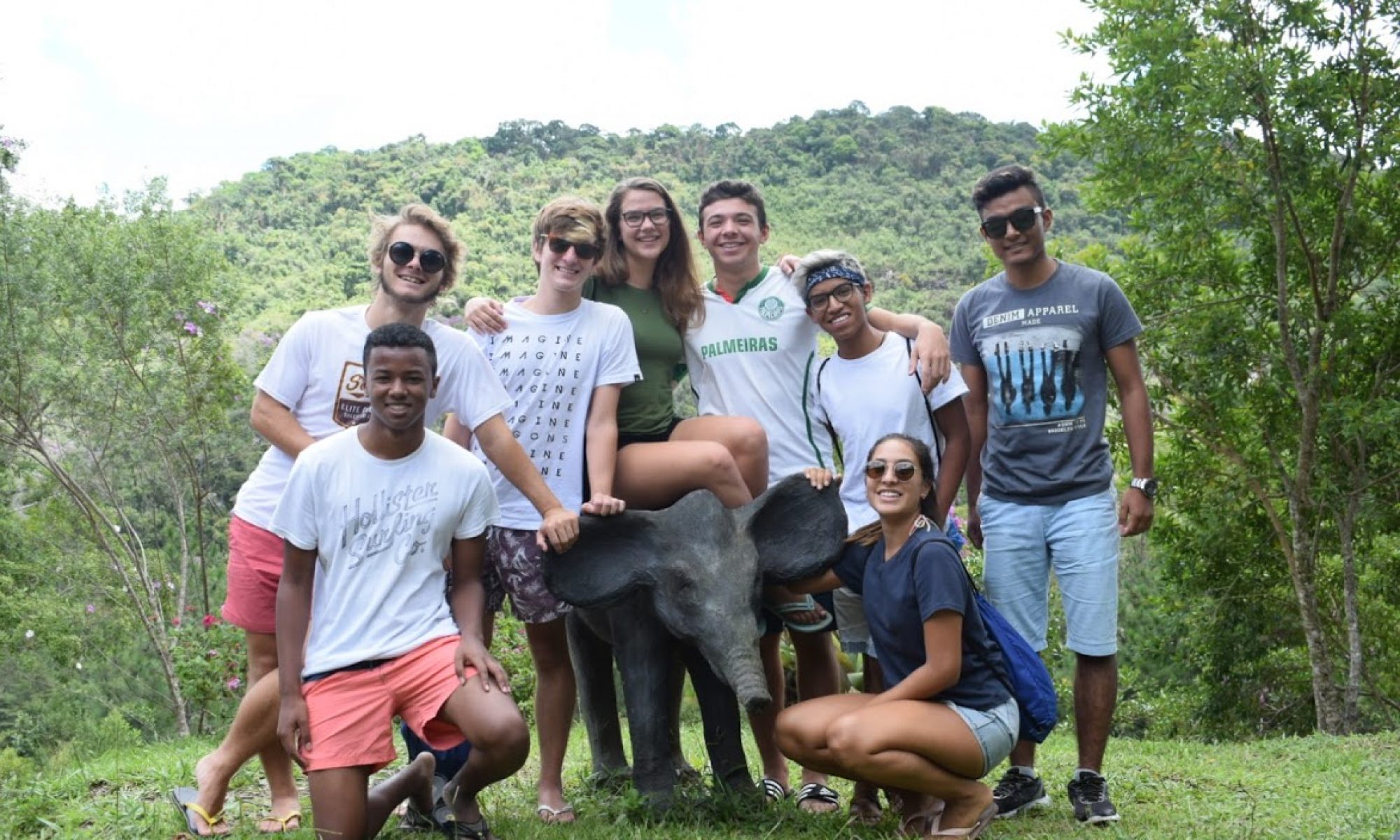
by Jennifer, Tufts 1+4 Participant
Recently, my host family and I visited Cajas National Park, about an hour outside of Cuenca. As I stepped out of our car, relieved to finally stretch my cramping limbs, I was swept away by the view. Rugged hills dappled deep blue and muddy green by low lying clouds stretched to the horizon. Driven by an urge to lose myself in endless sky, I began walking. From time to time, I climbed rocky outcroppings and gazed into the distance, leaving my worries far below.
The fields were so dense with tufts of native flowers it was hard not to step on them. The wildflowers were brilliant spots of color on a dull canvas, hidden behind rocks and between thickets of grass, peering out at me as I passed. They fascinated me, and I carefully stooped to examine crimson spikes, golden buds, and violet petals.

Later, I wandered off by myself into a forest. The color gradient of bark, verdant fern fronds bursting from the ground, and a grasshopper blending with dewy leaves caught my attention. Raindrops splattered on my head as I ducked under branches and stepped over logs. My tennis shoes sank into peat and became soaked, but I didn’t mind. Alone in the silence, damp and smelling of pine, I felt at peace.

Ecuador was the first country in the world to recognize Rights of Nature in its constitution. Article 71 says, “Nature, or Pacha Mama, where life is reproduced and occurs, has the right to integral respect for its existence and for the maintenance and regeneration of its life cycles, structure, functions and evolutionary processes.” Rights of Nature comes from Sumac Kawsay, or Buen Vivir, the worldview of the Quechua people.
I was disappointed but not surprised to learn the national government of Ecuador has been gold mining outside of Cajas for years. Gold mining threatens to disrupt the park’s delicate ecological balance and contaminate Cuenca’s drinking water. The national government has little respect for their progressive constitution and the ideals of their people.
The municipal government of Cuenca has protested fiercely against gold mining. In a September resolution, the Consejo Municipal pleaded with Ecuador’s new president, Lenin Moreno, to protect Cajas: “[The national government] should eliminate and, from now on, expressly prohibit metallic mining activities in water sources, moorlands, wetlands and cloud forests, and high Andean forests . . . and declaring these areas intangible.” But protests haven’t swayed the national government. They pursue their economic ends regardless of the consequences.
I volunteer with the Municipal Department of Culture in the office of International Projects, and I wrote a letter to several international organizations asking for support in our fight for Cajas. The only way to check the power of the national government is to ally with those more powerful.
This is my first time tackling a problem with politics. It can be frustrating sitting at a desk and waiting for the gears of bureaucracy to grind, but mundane work becomes fulfilling when I remember how I felt in Cajas, feet firmly planted, breathing the chill mountain air and squinting against the sun. After experiencing the park’s wild, beautiful majesty I feel compelled to save it.

